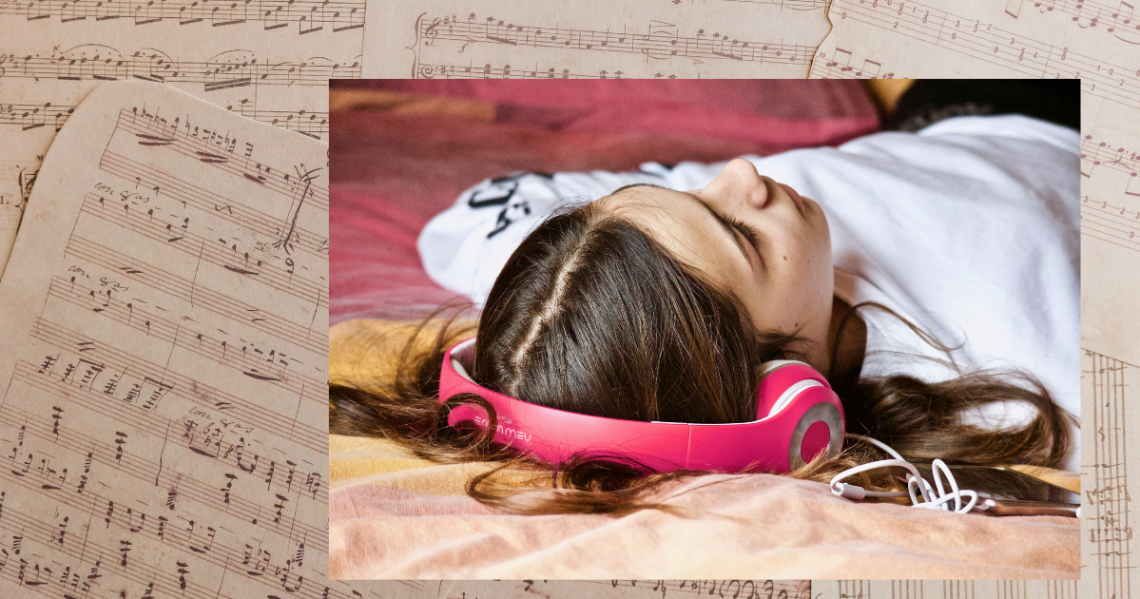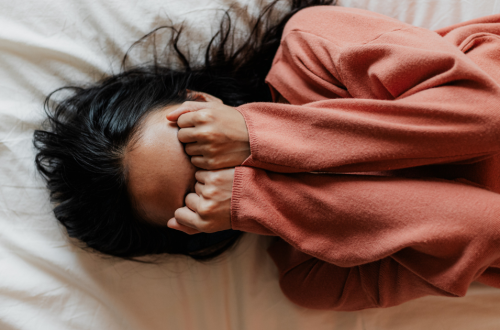
Using Music to Calm Anxiety
When anxiety hits, or if mild anxiety tends to be your default state, music can do a lot to calm the anxious soul. I’ve known that intuitively, and maybe you have, too, but I decided to see if there’s more, how using music to calm anxiety can bring rest to the soul. I’ve also got some practical ideas about putting these ideas into practice.
First, I found a lot of this information in a zillion places, so I’m not going to cite everything I say here, although I will give a couple examples. This is not a new field, and I’m not breaking new ground. But, as the world fills with Christmas music at this moment, which many of us equate with good memories and peace, it felt wrong not to discuss the role music can play in calming the soul.
Matching the mood
Most of what I read suggested music be matched your mood and then slowly taken down to where you want to be. Choose music whose tempo and volume matches where you are right now—if your heart is racing or you’re fidgety and can’t stop moving, choose similar music. It sounds counterintuitive to calm yourself with wild music, but it’s a place to start.
After this, move to slower, calmer music. Having a playlist ready ahead of time helps, especially if your anxious moments follow a pattern. If you always start ramped up, let your list start that way. If your anxiety starts with you sluggish and sad, start there and build to more upbeat music.
There is a debate on lyrics, so it seems this is personal preference. If music with lyrics helps, then it helps. If it doesn’t, look for music without. The debate is whether the mind needs the freedom to wander and the fact that lyrics inhibit that. Sometimes the last thing I want my mind to do is wander. It tends to wander to bad places. But I also need non-lyric music if it’s going to be in the background for longer-term calming.
The power of memories
Whatever your list looks like, include familiar music, especially music that reminds you of positive, happy times in your life. This one is completely intuitive. Nothing triggers memories like music, and songs that bring you out of your anxious thoughts and into good memories can settle you.
Lately I’ve found myself singing or humming songs from childhood. I was always in church, and all those little-kid church songs—I’ve been going over them a lot lately. The lyrics are simple, the memories are good, and they can be prayers when I don’t quite have the mind for normal praying. I’m sure God smiles as I sing about the fruit of the Spirit being like a cucumber or I sing the B-I-B-L-E.
Also, the memories don’t have to be personal. I’ve also been humming a lot of songs that are Bible verses set to music, again many written for children. Sometimes I don’t want my own memories. Sometimes remembering something happy when I’m feeling stress doesn’t help, but the Word of God is always a balm, and verse songs are great ways to bring that to mind. (Grab a couple free Scripture Songs here.)
Grounding with music
Music can bring you out of your head into the world around you, especially if you let yourself move. So groove through the kitchen or tap your foot. Engage your entire body, because activating the senses can help draw a person away from anxious thoughts back into the present reality.
Also along these lines is creating music. So far we’re listening or humming, maybe singing, but picking up an instrument can calm anxiety. If you don’t play something, try it. Learn a new instrument, because hobbies and learning and engaging the mind on something challenging is great for longer-term anxiety treatment.
Sure, trying to learn to play the piano in the midst of a panic attack is futile, but filling your non-anxious moments with things that can help prevent that anxiety—that’s worth trying. (I say this without much hope of putting it to the test, although I once dabbled at the piano and think it would be fun to try again. Maybe the kazoo?)

The science of music
Music has been shown to have physical effects on the body that calm anxiety. First, it can reduce cortisol and increase dopamine. In laymen’s terms, this chemical switch-up makes us feel pleasure instead of anxiety.
Music also affects blood pressure, heart rate, and breathing. This goes back to the mood matching. With music we can trade our overreacting physical bodies with more normal-reacting bodies, and the mind will follow suit. Once the fight or flight response calms, rational thought follows.
“Because music cognition is so complex for the human brain, it offers an easy distraction or diversion from any competing internal or external stress stimuli.”
Tom Ringgold, Music therapist
Music is complex. Making music, listening to music—both take a lot of brain. As Tom Ringgold, a music therapist, puts it in an ASCAP article about music and anxiety, “Because music cognition is so complex for the human brain, it offers an easy distraction or diversion from any competing internal or external stress stimuli.”
Music therapy
Have you heard of music therapy? It was rather nebulous to me, so I looked it up. I like this definition from the Cleveland Clinic: Music therapy is an evidence-based treatment that helps with a variety of disorders including cardiac conditions, depression, autism, substance abuse and Alzheimer’s disease. It can help with memory, lower blood pressure, improve coping, reduce stress, improve self-esteem and more.
The article went on to say that the practice can include listening to music, playing it, or creating it. It also points out that musical talent isn’t required. That’s good, because for some of us (raising my hand!!), that would be a deal breaker.
Just as a point of interest, formal music therapy began in 1945 in the US War Department hospitals to help rehabilitate soldiers. This is not new, and it has been used on some very needy souls.
Connecting through music
We know sometimes we anxious people isolate ourselves. Music can help to make connections. Maybe they’re real connections, like joining a choir or listening to music with a friend. Maybe they’re a little more distant, like following some favorite YouTube musicians. But music can be a way to interact.
I love singing in church. I’ve had to miss a couple services recently (due to anxiety, of all things.) It’s the Advent season, and I am missing my chances to sing Advent songs with the congregation. Sure, I can listen at home and even sing along, but it’s not the same. Singing or making music with others is a rush for me. I love it. And what I read says I’m not alone in that. Music can bring people together and build connections, and connections can help an anxious person either in the moment or long term by growing a support base when times get tough.
How can I use it now?
Okay, so say you’re not quite ready to find a music therapist, and maybe you’ve never played an instrument in your life. How can you use music now in your arsenal of anxiety calmers?
A playlist is a great place to start. Start with music you have or know, consider the tempo and lyrics, and make a specific list to get you from point A to point B during an anxious event. Most of us have phones where we can download, or we can use one of many, many music subscriptions out there.
My son has a Calm and Peace playlist he uses during rough moments. But he doesn’t limit it to rough moments. Find music to play during your good moments. Instead of only using music to react to an event, use it to prevent an event. Maybe you need something playing in the background during your normal days and hours to keep things at an even keel. It has a lot fewer side effects than medication. (Not that I oppose medication. I don’t. But I also look for ways not to live on it if possible.)
One article I read suggested carrying headphones. Feeling stress in a waiting room? You can’t just play your phone list or start a YouTube calm music session, but if you have headphones with you, you’re always ready for a few minutes of music to calm you.
A list
If you love lists as much as I do, here’s a list of ways to use music to calm anxiety.
- Prepare a playlist ahead of times
- Carry headphones
- Learn to sing or play an instrument
- Use music in your non-anxious moments
- Include prayers, scripture songs, or hymns
- Try new music, as this challenges the mind and is a great distraction
- Try music therapy
- Match music to your mood and then progress to the mood you want
- Include familiar music
- Find people with whom to share or discuss music
This sounds like work
I’m smiling as I write this, because I agree, especially creating a playlist on my phone. Not much of a phone fan. Fortunately, using music to calm anxiety is not a new idea. I’m not a regular YouTuber, but there are dozens if not hundreds of pre-made calming music videos there. Type in music for peace and a million videos pop up, some hours and hours long.
I personally like a video called Iroh’s Bookstore. I’ve written a lot of words in a lot of books with this music in the background. I don’t multitask well, so if I’m going to listen to music and work, it has to be super calm, and this is.
Many years ago, during my very first panic episodes, I had a cassette tape of calming music with nature sounds, and I listened to it when I was at my worst. Strangely, anytime I listened to that music, years after that bout, the music brought me peace. Even though I used it during my least peaceful moments, the memory that went with it was the calming of peace. I’m sorry to say that tape is long gone and I don’t know how to find that music again, but it says a lot about the power of music in the mind.
Add music to your anxiety-defeating arsenal and see what happens. I’m listening to Iroh’s Bookstore as I type this, and I’ve listened to it enough that it instantly brings me a greater level of calm.
Do you have favorite music for anxious moments? Or YouTube videos or other music you’re recommend? I’d love to hear about it in the comments.




